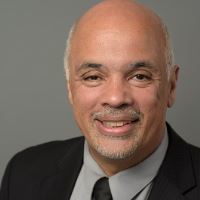Commentary on John 8:31-36
Reformation Sunday this year is a very special historical moment for Lutherans throughout the world.
We are celebrating the 500th anniversary of Luther’s October 31, 1517 posting of the 95 theses on Wittenberg Castle.1 As we reflect upon the meaning this holds for us, I believe that it behooves us to think about Luther’s relevance in the 21st Century church. His ideas certainly offer fertile, enduring concepts for theological and ecclesial work today. However, in attempting authenticity and faithfulness to Luther’s legacy, the advice of Karl Barth might be apropos:
“There can be as little question of the repristination of the teachings of Luther and Calvin as of the orthodoxy of the 17th Century — in the present rediscovery and re-acknowledgement of the authority of the reformers. If there were, we would not be giving them the honor due them, but refusing it. Not those who repeat the doctrine most faithfully, but those who reflect upon it most faithfully so that they can expound it as their own doctrine, are their most faithful pupils.”
In other words, regurgitation is not what we should be seeking. It is with that spirit of faithful reflection that we must read the gospel lesson for this week: How does one become free? That was the question for the Jewish leaders, and remains the question of today’s leaders, concerned with our present reality. It seems that the differences of opinion between Jesus and the religious leaders of his day were what many Liberation Theologians would refer to as “Orthopraxis verses Orthodoxy.”
The Jewish leaders of Jesus’ day perhaps felt that they were faithfully sharing/repeating the traditions and doctrines of the patriarchs and prophets in their strictest Orthodox manner. Jesus admonishes these leaders to have the truth revealed to them and to become free. Many felt somewhat confused at Jesus’ admonition. It is quite possible that they, like most of us, assumed that ideas and intellectual concepts were truth in and of themselves — fulfilling the criteria of truth and freedom. Apparently, Jesus saw it differently. He saw them as being enslaved to their “Orthodox” theology — one of regurgitation rather than a “lived” theology.
Declaring something a truth does not make it truth. Declaring freedom does not make you free. It is similar to some politicians declaring that everyone will have “access” to health insurance while promulgating a system of healthcare that is unaffordable and therefore, inaccessible to many. Similarly, another example that was evident in Jesus’ day as it is now, is that of the rich and powerful members of our society. These powerful members of society can create a semblance of being law abiding and pure, attending religious services regularly, following the traditions and offering the largest sacrifices/offerings, but at the same time lacking true faithfulness and good works.
The Jews were following the patriarchs and prophets, through strict adherence to the law. However, Jesus reinterprets the prophets and patriarchs for his day, leaving the leaders stunned and confused. The Apostle James referred to the kind of theology that is characterized by action — faith in action seen as Good Works — as a “living theology,” and theology characterized by inaction as “dead.”
It seems that Jesus was imparting for us the idea that in order to truly follow him faithfully, (and for that matter, follow the patriarchs and prophets), one had to live his teachings. It was not enough to understand their teachings intellectually. This life of practice, in turn, would result in knowing the truth. The truth could only be obtained in the praxis of discipleship. As Jesus reinterprets for the leaders in his day, it is our task to re-interpret Luther’s teaching for our society today.
The truth obtained in living out our faith will lead us to freedom. Perhaps the religious leaders were enslaved by their interpretations of and adherence to tradition. Are we ourselves stuck in “faithfully” regurgitating Luther? How has our adherence to law and tradition imprisoned us, causing us to live out a “dead’ theology? Rather than adhering to an orthodox Lutheran supplanting of Luther’s teaching for today, we are called instead to reading Luther within the contextual realities of today. The truth obtained in living out our faith will lead us to freedom. Jesus’ has always offered freedom, but sometimes we are so connected to our ways of living and being, that we remain imprisoned in these rituals and traditions that prevent us from living our faith.
In the spirit of reflecting upon these teachings faithfully and in praxis, what can we learn from this passage as we celebrate 500 years of the great teachings of The Reformation? Can we really know the freedom of grace without living in grace to others? Can we understand reconciliation without being reconcilers in our communities and churches? Is it enough to say we have been lifelong Lutherans, and have studied the Augsburg’s confessions without faithfully and contextually applying its teachings? These and many other questions are here for us to ponder as we reflect on Luther’s legacy to the Christian faith.
Notes
1. Historians believe that the 95 theses were disseminated in a different manner.


October 29, 2017